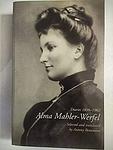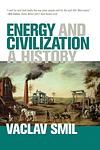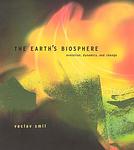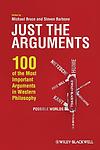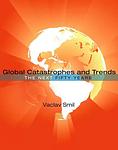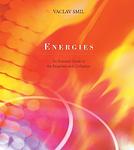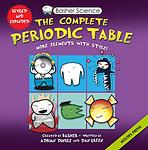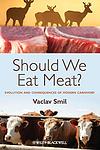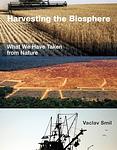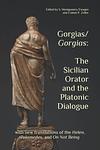The Greatest Czech, Multiple "Nonfiction" Books Since 1980
Click to learn how this list is calculated.
This list represents a comprehensive and trusted collection of the greatest books. Developed through a specialized algorithm, it brings together 300 'best of' book lists to form a definitive guide to the world's most acclaimed books. For those interested in how these books are chosen, additional details can be found on the rankings page.
Genres
Countries
Date Range
Reading Statistics
Click the button below to see how many of these books you've read!
Download
If you're interested in downloading this list as a CSV file for use in a spreadsheet application, you can easily do so by clicking the button below. Please note that to ensure a manageable file size and faster download, the CSV will include details for only the first 500 books.
Download-
1. Living In Truth by Vaclav Havel
"Living in Truth" is a collection of essays and speeches that delve into the moral and existential struggles of living under an oppressive regime. The work explores the nature of power, truth, and individual responsibility in a society where the official narrative often contradicts reality. The author, a dissident playwright turned political leader, argues for the importance of living with integrity and maintaining a commitment to truth as acts of resistance. Through personal anecdotes and philosophical reflections, the text serves as both a critique of totalitarianism and a guide for maintaining one's humanity in the face of systemic deception and coercion.
-
2. The World Of Economics by John Eatwell, Murray Milgate, Peter Newman
"The World of Economics" is a comprehensive reference book that serves as an essential guide to the field of economics, offering a wide-ranging compilation of entries penned by an international group of economists and scholars. The work covers key concepts, theories, and figures that have shaped economic thought, providing readers with a deep understanding of both historical and contemporary economic issues. Its encyclopedic format presents a wealth of information on various topics, including economic policy, market structures, and foundational principles, making it a valuable resource for students, professionals, and anyone interested in the complexities of how economies function and evolve.
-
3. The Egyptian, Syrian, And Iraqi Revolutions by Hanna Batatu
The book provides a comprehensive analysis of the socio-political dynamics and revolutionary movements in Egypt, Syria, and Iraq throughout the 20th century. It delves into the historical context, key political figures, and socio-economic conditions that led to the uprisings and transformations in these countries. The author meticulously examines the interplay of various social classes, political parties, and external influences, offering a detailed narrative and critical insights into the mechanisms of power, resistance, and change within these Arab states.
-
4. Four Agreements : A Calendar For Wisdom And Personal Freedom by Don Miguel Ruiz
The book presents a framework for personal growth and freedom based on four fundamental principles that encourage individuals to live with integrity, love, and happiness. These agreements are: to be impeccable with your word, to not take anything personally, to not make assumptions, and to always do your best. By adopting these agreements, the book suggests that one can break free from limiting beliefs that create suffering and instead, lead a life filled with peace, grace, and empowerment. The author draws upon ancient Toltec wisdom to offer a powerful code of conduct that can rapidly transform our lives to a new experience of freedom, true happiness, and love.
-
5. La Charte Du Mandé Et Autres Traditions Du Mali by Aboubakar Fofana, Jean-Louis Sagot
"La Charte Du Mandé Et Autres Traditions Du Mali" is a comprehensive exploration of the rich historical and cultural heritage of Mali, focusing on the ancient Mandé Charter, also known as the Manden Charter. This seminal text delves into the origins and implications of this 13th-century document, which is one of the earliest forms of human rights charters. The book not only examines the charter's principles of social justice, equality, and political ethics but also contextualizes it within a broader spectrum of Malian traditions, shedding light on the country's profound historical narratives and the enduring cultural practices that continue to shape its identity.
-
6. Shadows Of Tender Fury by Subcomandante Marcos
"Shadows of Tender Fury" is a compilation of letters and communiqués written by Subcomandante Marcos, the spokesperson for the Zapatista Army of National Liberation (EZLN) in Chiapas, Mexico. The book documents the period following the 1994 Zapatista uprising, providing insights into the ideological motivations, social justice issues, and the demands for indigenous rights that define the movement. Through these writings, Marcos articulates the struggles and philosophies of the Zapatistas, blending political analysis with poetic eloquence, and offers a compelling voice in the fight against global economic inequality and for the empowerment of marginalized communities.
-
7. The Freud Reader by Sigmund Freud
"The Freud Reader" is a comprehensive anthology that provides a key selection of Sigmund Freud's most important writings, spanning the entire length of his career. Edited by a prominent Freud scholar, this collection includes complete texts of some of his most famous works, as well as excerpts from his lesser-known writings. The book is designed to give readers a clear sense of Freud's development as a thinker and writer, presenting his ideas on psychoanalysis, the unconscious mind, dreams, the theory of sexuality, and the structure of the psyche. This reader serves as an essential introduction to Freud's groundbreaking theories and his contributions to the understanding of human psychology.
-
8. The Diaries by Alma Mahler
"The Diaries" is a personal and introspective account that offers a glimpse into the life of Alma Mahler, a prominent socialite and composer in early 20th-century Vienna. Through her diaries, Alma provides a vivid portrayal of her complex relationships, her struggles and triumphs in the artistic community, and her interactions with some of the most influential artists and intellectuals of her time. The entries reveal her inner thoughts, passions, and the challenges she faced as a woman navigating her identity and desires in a male-dominated society.
-
9. A Month And A Day by Ken Saro-Wiwa
"A Month and a Day" is a poignant memoir that recounts the personal and political struggles of an environmental and human rights activist in the Niger Delta region of Nigeria. The author details his non-violent fight against the ecological destruction and economic exploitation wrought by multinational oil companies and the Nigerian government. His narrative provides an intimate glimpse into his dedicated activism, the resulting political imprisonment, and the broader socio-political issues facing his community. Through his eyes, readers gain insight into the complex interplay between environmental degradation, ethnic and economic tensions, and the relentless pursuit of justice and sustainability.
-
10. Energy by Vaclav Smil
This book provides a comprehensive exploration of energy in its various forms, tracing its role throughout human history. The author delves into the science of energy, from the muscle power of prehistoric humans to the modern era's reliance on fossil fuels and the potential of renewable sources. With a focus on the environmental and societal impacts of energy consumption, the narrative emphasizes the importance of sustainable energy practices. Through a blend of historical context, scientific analysis, and a look at current energy challenges, the book offers a deep understanding of the essential role energy plays in shaping civilizations and the urgent need for a more efficient and environmentally friendly approach to energy use.
-
11. The Earth's Biosphere by Vaclav Smil
This book provides a comprehensive overview of the Earth's biosphere, exploring the complexity and resilience of life on our planet. It delves into the intricate relationships between the biosphere's various components, including ecosystems, organisms, and the physical environment, while also examining the impact of human activities on these natural systems. The author synthesizes a vast array of scientific knowledge to present a detailed yet accessible understanding of how the biosphere functions, its evolutionary history, and the critical challenges it faces in the modern era. Through this exploration, the book highlights the importance of sustainable practices to preserve the delicate balance of life on Earth for future generations.
-
12. Just The Arguments by Michael Bruce, Steven Barbone
"Just The Arguments" provides a concise exploration of 100 of the most significant and influential philosophical arguments throughout history. Each argument is distilled into a brief and accessible summary, offering readers insights into complex philosophical ideas ranging from ancient to contemporary thought. The book is designed to serve as an introductory guide for students and enthusiasts of philosophy, presenting clear and straightforward explanations and analyses of key philosophical debates, making it an essential resource for anyone looking to understand the foundational arguments that have shaped philosophical discourse.
-
13. Japanese Philosophy by John C. Maraldo, Thomas P. Kasulis, James W. Heisig
This book provides a comprehensive overview of Japanese philosophy, exploring its unique characteristics and its evolution through history. It delves into the diverse intellectual traditions of Japan, including both well-known philosophical schools and lesser-known but equally significant ideas. The text examines how Japanese philosophy has been influenced by and has interacted with other philosophical traditions, particularly Western philosophy, while also highlighting its distinct approach to fundamental philosophical issues such as ethics, aesthetics, and the nature of reality. Through a detailed analysis, the book offers insights into how Japanese philosophical thought has contributed to broader philosophical discourse and how it reflects the cultural and historical context of Japan.
-
14. The Philosophical Works Of Al Kindi by Peter E. Pormann, Peter Adamson
This book is a comprehensive compilation and analysis of the works of Al-Kindi, often regarded as the first of the Muslim peripatetic philosophers. The text delves into Al-Kindi's extensive contributions to various fields of knowledge, including philosophy, mathematics, astronomy, and medicine, highlighting his role as a pivotal figure in the translation and transmission of ancient Greek philosophy to the Islamic world. Through translations of his works and insightful commentary, the book provides a critical exploration of Al-Kindi's synthesis of philosophical thought and his influence on subsequent Islamic and Western intellectual traditions.
-
15. Creating The Twentieth Century by Vaclav Smil
This book provides a comprehensive analysis of the technical innovations and scientific discoveries that fundamentally transformed the 20th century, laying the groundwork for modern society. It delves into the period from 1867 to 1914, which the author identifies as crucial years when core technologies such as electricity, the internal combustion engine, and basic chemical processes were developed. These innovations, the book argues, set the stage for the unprecedented economic growth and improvement in human well-being that characterized the 20th century. Through a detailed examination of the interplay between technological advancement and societal change, the narrative explores how these foundational developments have shaped the contemporary world, highlighting both the positive outcomes and the challenges they have brought.
-
16. Global Catastrophes And Trends by Vaclav Smil
This book provides a comprehensive analysis of the major natural and human-induced disasters and trends that have the potential to significantly alter the course of human civilization. It delves into a wide array of topics, from environmental degradation and climate change to the risks of nuclear warfare and pandemics, offering a detailed examination of their causes, impacts, and the likelihood of their occurrence. The author meticulously assesses the probability and severity of these global challenges, combining scientific research with historical context to evaluate how they might shape the future. Through a blend of rigorous analysis and insightful commentary, the book aims to enhance our understanding of the complex dynamics that govern our world and the potential pathways to mitigate these global risks.
-
17. Energies by Vaclav Smil
This book provides a comprehensive exploration of the various forms of energy that power the planet, from traditional fossil fuels to renewable sources like wind and solar power. The author delves into the scientific principles underlying energy conversion, storage, and transmission, offering insights into the complexities of energy systems and their impacts on the environment and society. Through a detailed analysis, the book presents a balanced view on the challenges and opportunities of transitioning to a more sustainable energy future, emphasizing the need for informed policy decisions and technological innovations.
-
18. Energy Transitions by Vaclav Smil
This book provides a comprehensive analysis of the historical shifts in energy sources and consumption patterns, from traditional biomass to fossil fuels and the potential future transition to renewable energy sources. It examines the technological, economic, and environmental challenges associated with these energy transitions, emphasizing the complexity and duration of these shifts. The author argues that while transitions to more efficient and less environmentally damaging energy sources are necessary, they will be gradual and require significant technological innovations and societal adaptations. Through a detailed exploration of past and present energy systems, the book offers insights into the future of global energy consumption and the path towards a more sustainable energy landscape.
-
19. Energy Myths And Realities by Vaclav Smil
In "Energy Myths and Realities," the author critically examines the widespread misconceptions surrounding energy and its future. Through a rigorous analysis of data and trends, the book debunks popular myths about the potential of renewable energy sources, the pace of energy transitions, and the feasibility of achieving rapid changes in energy systems. It emphasizes the complexity of energy production and consumption, arguing for a more nuanced understanding of energy realities. The author advocates for realistic expectations and pragmatic approaches to energy policy and innovation, cautioning against the dangers of oversimplification and the allure of quick fixes in the discourse on energy sustainability and security.
-
20. The Periodic Table by Adrian Dingle, Simon Basher
"The Periodic Table" is an educational book that presents the elements of the periodic table in a unique and engaging way. Aimed at younger readers, the book personifies each element, giving it a distinct voice and personality to make the scientific content accessible and entertaining. Through vivid illustrations and concise explanations, the book covers essential concepts about the structure and behavior of elements, their roles in the natural world, and their applications in various fields of science and industry. This approach not only helps demystify complex chemistry topics but also sparks curiosity and enthusiasm for science in its readers.
-
21. Should We Eat Meat? by Vaclav Smil
This book provides a comprehensive examination of the role of meat in human diets and its impact on health, the environment, and society. It delves into the history of meat consumption, explores the ethical considerations surrounding animal farming, and analyzes the environmental consequences of meat production, including greenhouse gas emissions and land use. The author presents a balanced view, weighing the nutritional benefits of meat against its ecological footprint and considering sustainable alternatives. Through a detailed and scientific approach, the book encourages readers to ponder the complex question of whether the consumption of meat is justifiable in the modern world, offering insights into possible future directions for global dietary practices.
-
22. Harvesting The Biosphere by Vaclav Smil
This book provides a comprehensive examination of the human impact on Earth's biosphere, focusing on the extraction and exploitation of biological resources. It delves into historical and contemporary practices of harvesting plants and animals for food, fuel, and raw materials, quantifying the scale and intensity of these activities. The author meticulously analyzes how these practices have evolved over time and assesses their sustainability and environmental consequences. By offering a detailed account of the biosphere's transformation under human influence, the book presents a critical perspective on the limits of resource utilization and the urgent need for adopting more sustainable practices to ensure the long-term viability of our planet's ecosystems.
-
23. The Edge Of Physics by Anil Ananthaswamy
"The Edge of Physics" is a captivating exploration into the most extreme and remote scientific observatories around the world, where physicists are pushing the boundaries of our understanding of the universe. The book delves into the challenges and adventures faced by scientists as they work in inhospitable and often dangerous environments—from deep underground mines to high mountaintops and the icy expanses of Antarctica—to conduct experiments that probe the mysteries of dark matter, cosmic rays, and the origins of the universe itself. Through vivid storytelling, the book not only sheds light on cutting-edge scientific research but also reflects on the profound human curiosity and relentless pursuit of knowledge that drive these extraordinary endeavors.
-
24. Energy And Civilization by Vaclav Smil
This book provides a comprehensive examination of the role that energy has played in the development of human societies, from the harnessing of fire by early humans to the complex energy grids of the 21st century. It explores how the transformation and consumption of energy have been pivotal in the advancement of civilizations, underpinning economic systems, technological progress, and the rise and fall of empires. The author meticulously analyzes the transition from muscle power to fossil fuels and renewable energy sources, highlighting the environmental and societal impacts of our growing energy demands. Through a detailed historical and scientific lens, the narrative underscores the critical importance of energy management in addressing current global challenges, advocating for a more sustainable and efficient future.
-
25. Gorgias/Gorgias : The Sicilian Orator And The Platonic Dialogue by Coleen P. Zoller, Jurgen R. Gatt, S. Montgomery Ewegen
This book provides a comprehensive analysis of the Platonic dialogue centered on the figure of Gorgias, a renowned Sicilian orator and sophist. It delves into the philosophical conversations between Socrates and Gorgias, along with other interlocutors, exploring themes such as rhetoric, justice, and the nature of the good life. The text examines the intricacies of Socratic dialectic and the contrast between philosophical inquiry and the art of persuasion practiced by sophists. Through this exploration, the book sheds light on the enduring questions about the relationship between power, knowledge, and ethics in the context of human discourse and action.
Reading Statistics
Click the button below to see how many of these books you've read!
Download
If you're interested in downloading this list as a CSV file for use in a spreadsheet application, you can easily do so by clicking the button below. Please note that to ensure a manageable file size and faster download, the CSV will include details for only the first 500 books.
Download

